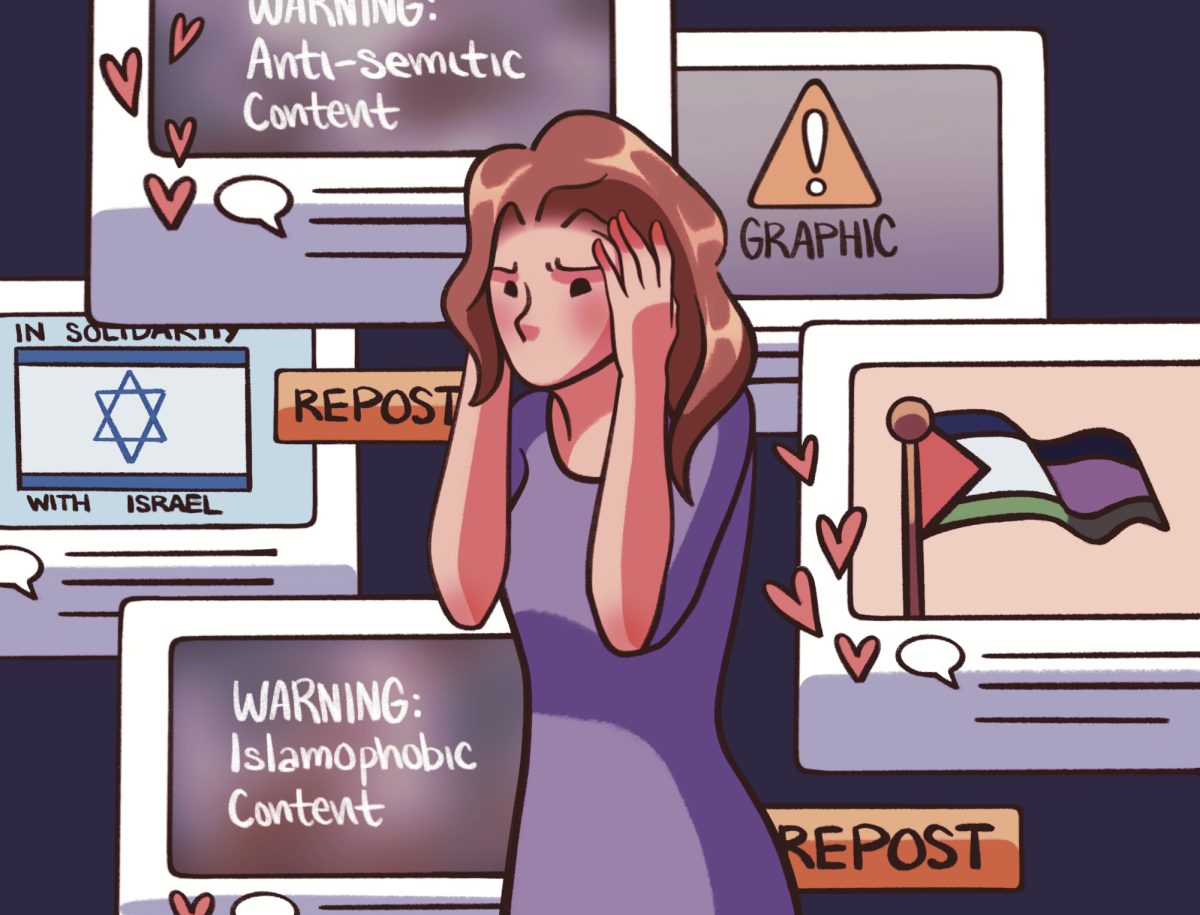On the day of Jewish holiday Simchat Torah, Hamas launched a surprise attack on Israel. This Oct. 7 attack included the simultaneous firing of thousands of rockets into southern and central Israel, raids in towns just miles away from the Gaza strip, the kidnapping of 200 hostages and thousands of casualties. In a televised statement that evening, Israeli Prime Minister Benjamin Netanyahu urged those in Gaza to leave the territory before Israel retaliated even though surrounding blockades prevented the residents of Gaza from escaping.
Since then, the Israeli Defense Force has declared war on Hamas and launched thousands of rockets into Gaza, decimating hospitals and apartment buildings and killing more than 2000 Gazans. Israel also cut off electricity, water and supplies to Gaza on Oct. 9, exacerbating the already severe humanitarian crisis.
Although The Campanile acknowledges the complexity of the Israel-Hamas conflict, we denounce Hamas’s attack against Israel and condemn the terrorist group for using civilians as human shields. The Campanile thinks Israel could have prevented the deaths of thousands of civilians living in Gaza by retaliating with less brutality.
Following the initial attacks by Hamas on Israel, people around the world rallied in solidarity with Israel and the Jewish people, which we support. In other places people celebrated in the streets, calling for the freedom of Palestine, which in the context of the initial assault against Israel, we cannot support because of Hamas’s violent actions against Israel.
Because of the complexity of the situation, we also urge students to understand the difference between being pro-Hamas and pro-Palestine. According to the Wall Street Journal, Hamas is a military group that rejects Israel’s right to exist and is classified as a terrorist organization by the U.S., the European Union and Israel. We cannot support terrorism. But being pro-Palestine isn’t the same as being pro-Hamas and we hope people will disentangle Hamas from the Palestinian people living in Gaza and around the rest of the world, including those in the Bay Area.
As far as the PAUSD response to the Hamas attack and the Israeli retaliation, we wish the district would have responded faster and more empathetically to address the issue and offer support to those impacted. On Oct. 10, former Hamas Political Bureau Chairman Khaled Mashal said Oct. 13 should be a Day of Jihad against Jewish people. And while many Jewish schools in the Bay area closed for the day or held classes remotely to ensure the student and faculty safety, PAUSD did not initially release any statement addressing this potential security issue.
In an interview with The Campanile, senior Ori Cohen, who is Jewish, said several students threatened a walk-out and sent emails to Superintendent Don Austin calling for him to release a formal security plan by 8 a.m.to ensure student and faculty safety that Friday.
Eventually Austin did post a 257-word message to Schoology at 8:14 a.m. on Oct. 13, explaining that PAUSD would be increasing communications with the Palo Alto Police Department to ensure the safety of students and faculty during the school day.
While the idea of the message was good, we think it came too late and was unnecessarily vague, giving the impression that the district was sidestepping the issue, rather than addressing the conflict head-on.
We would also encourage the student body to do better in educating itself about what is happening in Israel and Gaza right now and the complex history that has led us to this point. Many students have turned to social media platforms to understand the Israel-Hamas conflict in real time following the initial attack.
While we encourage everyone to educate themselves about the conflict, we hope people continue to fact check the information they obtain from social media with information from credible sources.
While social media can function as a valuable platform for communication and advocacy, it can also be a tool that perpetuates the spread of misinformation. Over the past two weeks, graphic images, disturbing videos and misinformation have circulated on platforms like Instagram, TikTok and X. While the content shared on social media can be eye-opening, social media posts often oversimplify issues, causing students to take a radical stance on an issue that is often not so black and white.
Social media algorithms also make it easy to turn to sources that mirror your own feelings, which only increases the spread of misinformation and deepens the sociopolitical divide.
The Israel-Hamas conflict is complex, but The Campanile urges people to inform themselves using credible sources before forming an opinion. While Hamas is a terrorist group and should not be supported, we think Israel could have retaliated with less brutality. And ultimately, Superintendent Austin’s statement could have addressed the conflict in a more timely and empathetic manner, uniting the community at this difficult time.
Everyone should take more steps to understand Israel-Hamas conflict
Students should inform themselves with credible sources, avoid social
media misinformation before forming opinions on Middle East conflict
The Editors-in-Chief
•
November 20, 2023
Story continues below advertisement
0
Donate to The Campanile
$500
$1000
Contributed
Our Goal
Your donation will support the student journalists of Palo Alto High School's newspaper

